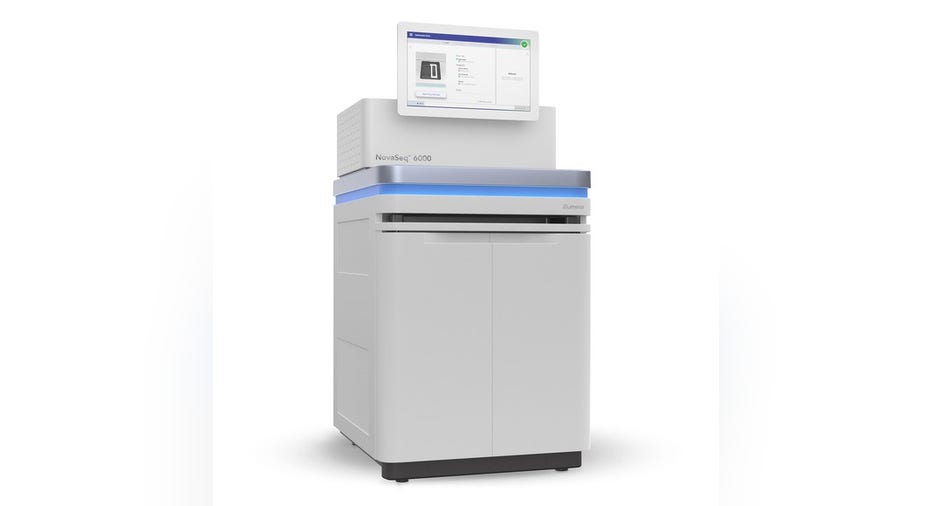The Top Gene-Sequencing Stock to Buy in 2017

Investors have fairly limited options for buying gene-sequencing companies -- there just aren't that many to invest in. And some of the companies involved in gene sequencing aren't exclusively focused on it.
But one company stands out: Illumina.
|
Company |
Instruments |
2016 Revenue From Gene Sequencing |
Fraction of Sales From Gene Sequencing |
|---|---|---|---|
|
Illumina (NASDAQ: ILMN) |
MiniSeq, MiSeq, NextSeq, HiSeq, NovaSeq |
$2.0 billion |
84% |
|
Pacific Biosciences of California (NASDAQ: PACB) |
Sequel |
$91 million |
100% |
|
Qiagen (NASDAQ: QGEN) |
GeneReader |
N/D |
N/D |
|
Thermo Fisher Scientific (NYSE: TMO) |
Ion Torrent |
N/D |
N/D |
Data source: Company press releases and 10-Ks. N/D=not disclosed.
Qiagen and Thermo Fisher Scientific both have quite a few other products for clinical and research labs that have nothing to do with gene sequencing. Investors looking to specifically take advantage of the growth potential of gene sequencing should look elsewhere simply because their growth will be limited by Qiagen's and Thermo Fisher Scientific's other products.
Two-horse race
That leaves Pacific Biosciences and Illumina, whose machines sequence DNA in completely different ways. Pacific Biosciences' single molecule, real-time (SMRT) technology produces long reads while Illumina's technology involves breaking up the DNA into small fragments that are then sequenced.
Breaking up the DNA limits the applications that Illumina's machines are capable of. The short sequences have to be lined up to a known sequence, so sequencing new organisms would be very hard to do. The short sequences also make it hard to interpret regions of the genomes that repeat since it isn't clear where that fragment came from.
Nevertheless, Illumina is the leader in sales by an order of magnitude for one reason: price. Illumina has brought the price of sequencing a human genome down to $1,000, and the company thinks its newest machine, the NovaSeq, can bring the cost down to $100 with technological advances over the next few years.
Pacific Biosciences will be able to fill the niches where Illumina's machines don't perform well, but researchers will migrate to Illumina's machines for applications where its machines are capable -- which would include most human genome studies that make up a large percent of the future market -- simply because it's cheaper to use Illumina's machines.
NovaSeq 6000. Image source: Illumina.
The biggest risk
As with any technology company, there's always the possibility that a competitor could develop a way to sequence DNA faster or cheaper, but I think Illumina's biggest risk is its own success. As the price of sequencing gets to a reasonable level and the usefulness of the data increases as more genetic changes are linked to diseases and other traits -- how patients respond to medication, for instance -- everyone's doctor will order whole genome sequencing.
And then what?
For the most part, most people will only need to get their genomes sequenced once, leading to sales eventually being tied to the birth rate. That transition is years away, but Illumina is already making moves to deal with the eventual slowdown in sales of sequencing machines and reagents.
While patients might only have their genomes sequenced once, it's likely that doctors will want to look at that data multiple times over the life of the patient, so Illumina has spunoff a company called Helix that's developing a store where developers can sell apps to analyze the DNA sequence while Helix takes a percentage of the developers' sales.
And through another spinoff called GRAIL, Illumina is looking to use its machines to screen for tumor DNA in blood samples. GRAIL recently announced a 120,000-person study to validate its method screening for breast cancer in women. Having a screening tool for cancer could potentially boost sales substantially because, unlike sequencing, patients would be screened multiple times over their lifetimes.
10 stocks we like better than IlluminaWhen investing geniuses David and Tom Gardner have a stock tip, it can pay to listen. After all, the newsletter they have run for over a decade, Motley Fool Stock Advisor, has tripled the market.*
David and Tom just revealed what they believe are the 10 best stocks for investors to buy right now... and Illumina wasn't one of them! That's right -- they think these 10 stocks are even better buys.
Click here to learn about these picks!
*Stock Advisor returns as of April 3, 2017
Brian Orelli has no position in any stocks mentioned. The Motley Fool owns shares of and recommends Illumina. The Motley Fool recommends Pacific Biosciences of California and Qiagen. The Motley Fool has a disclosure policy.



















